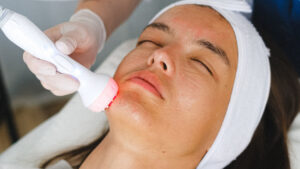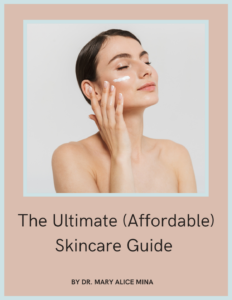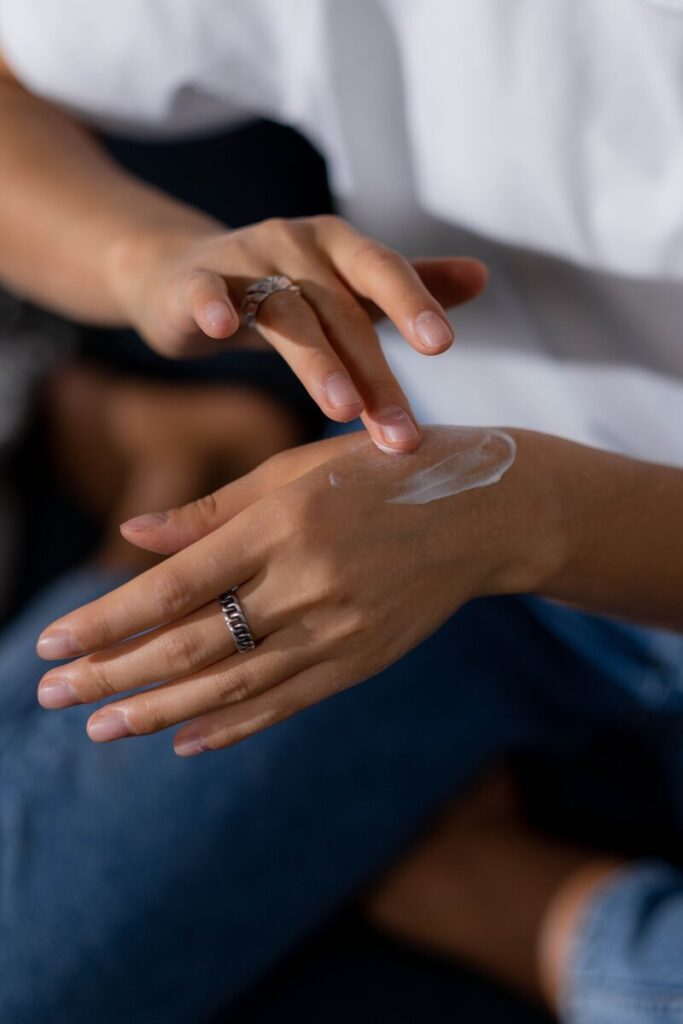Congratulations! You’ve accomplished something incredible by nurturing a real, tiny human being throughout the past 9 months! Now that your little one has finally arrived, life with a newborn brings a unique set of challenges and joys. However, amidst all the baby bliss, have you considered the changes your body and skin have undergone?
The nine months of pregnancy can take a toll on a woman’s body and skin, and it doesn’t magically snap back to its pre-pregnancy state as soon as the baby arrives. But fret not! The changes that occur during your “4th trimester” (the time period after delivery) are completely normal, and you are definitely not alone in this journey.
Although these changes are infrequently discussed, let’s shed some light on them and explore what you can do to address them. Let’s dive in!
Hair Loss
This is one of the most common postpartum changes women face after delivery and it can be scary! After enjoying months of thick and beautiful hair, it may feel as if all your hair is suddenly falling out at once. Rest assured, this condition is known as telogen effluvium, and it is both normal and reversible! During pregnancy, your hair cycle is switched so that hair shedding is limited giving you that beautiful mane. After childbirth, the drop in estrogen and progesterone levels prompts your hair to switch back to its regular shedding cycle.
This sudden transition might give the impression that all your hair is falling out at once. However, this is a natural part of the postpartum journey, and your hair will gradually readjust to its normal cycle. We can also see telogen effluvium after other stressors like illness (think COVID!), a big surgery, or stressful life events.
Pro tips:
– Don’t hesitate to wash your hair regularly. Contrary to popular belief, shampooing does not contribute to hair loss.
– Use a volumizing shampoo and when using conditioner, focus on applying it to the ends of your hair rather than the scalp.
– Maintain a healthy and balanced diet to support hair growth and overall well-being.
Stretch marks
Striae, also known as stretch marks are a common badge of motherhood and for good reason; your stomach must stretch to accommodate a growing baby! After delivery, your stomach gradually returns to its new shape, sometimes leaving behind stretch marks and loose skin. The good news is that this is entirely normal, and there are treatments available to help improve their appearance.
Here are some tips and options to care for your postpartum skin:-
-Try to gain weight slowly and lose weight slowly so that your skin has sufficient time to accommodate.
– Applying tretinoin (a type of retinoid) to stretch marks early on can help improve their appearance. It’s important to consult with your dermatologist to ensure it is safe and effective.
-Microneedling, platelet-rich plasma therapy, lasers, and micro-coring have shown promise in improving the appearance of stretch marks so be sure to talk to your dermatologist on what may be best for you.
-While cocoa butter has been a popular choice, there’s a better alternative for effective hydration: a moisturizer containing hyaluronic acid! Hyaluronic acid can be a game-changer in moisturizing your skin and improving its overall condition.
Linea Nigra
This dark line that can appear from your pubis to your belly button is normal during pregnancy and will fade (sometimes slowly) after delivery! It’s important to remember that everyone’s skin is unique, and the timeline for its disappearance can vary. Be patient and give your body the time it needs to naturally heal and recover.
Postpartum acne
Postpartum acne is a common skin concern that arises due to hormonal fluctuations after childbirth. If you are no longer trying to conceive or breast feeding, birth control pills and spironolactone are two options that can help regulate hormone levels and reduce acne breakouts.
Retinoids, benzoyl peroxide, and salicylic acid products are effective options that can help manage acne breakouts. Keep in mind that as your hormones gradually normalize, your acne should calm down as well.
As you navigate the postpartum period, always remember to celebrate the beauty of motherhood. Life changes as you know it with a baby, and while not all the associated skin and body changes are welcome, they are normal and a badge of motherhood! Each scar, mark, and change represents a unique chapter in your life story. Seek care from a dermatologist if you have skin or hair changes that aren’t resolving or are concerning.
Join me on my podcast this week as I discuss the ins and outs of postpartum skin care.
A new podcast episode drops every Monday!










